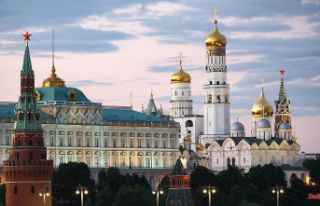After consumer prices in the US have not risen quite as sharply of late, hope is germinating on Wall Street that the Fed could put the brakes on rate hikes. Meanwhile, Johnson worries
On Wall Street, investors took heart at the end of the week and grabbed shares. Investors were hoping that the US Federal Reserve would slow the pace of the rate-hike cycle should inflation across the board ease off. Most recently, consumer and producer prices in July did not rise quite as rapidly as they had recently.
The Dow Jones index of standard values gained 1.3 percent to 33,761.05 points. The tech-heavy Nasdaq advanced 2.1 percent to 13,047.19 points and the broad-based S
"There is a lot of uncertainty as to how oil prices and other consumer prices will continue, but the peak of inflation is clearly behind us," said John Vail of Nikko AM. The crucial question now is how far and how fast it will fall. Central banks are likely to take a more hawkish stance than is widely believed. The Fed had recently fought rampant inflation with unusually large interest rate hikes. She wants to follow up next month. The key interest rate is currently in the range of 2.25 to 2.50 percent.
Among the individual stocks, the US pharmaceutical and consumer goods group Johnson was the top performer
ADDvantage titles were up 35.4 percent thanks to robust quarterly numbers. Due to the upgrade of the mobile networks to the 5G standard, among other things, sales at the mobile communications supplier shot up by 63 percent in the third quarter.
Uncertainty about oil demand remained high on the commodity market in the coming months. The prices for the North Sea oil Brent and the US oil WTI found it difficult to find a unified direction. They fluctuated around their previous day's close of $99.60 and $94.34 a barrel. On Thursday, the International Energy Agency's (IEA) increased forecast for oil demand this year pushed prices up by more than four and three percent, respectively. However, there was concern that OPEC is assuming lower oil demand due to economic uncertainties and has cut its forecast for the third time since April.












